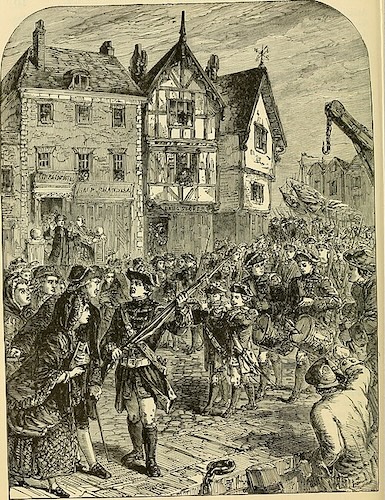For many years, Britain used trade laws called the Navigation Acts to control how goods moved in and out of its American colonies. These laws were based on mercantilism and required colonists to ship products like tobacco and sugar through British ports, where they would be taxed. However, for much of the 1600s and early 1700s, Britain did not strictly enforce these laws, allowing many colonial merchants to trade freely with other countries.
That changed after the French and Indian War ended in 1763. Britain was in heavy debt and began cracking down on smuggling to raise more money from its colonies. Customs officials were sent to enforce the Navigation Acts more seriously. Many colonists believed these trade rules were unfair. They were angry that they had no representatives in Parliament to speak for them. In response, colonists organized petitions and peaceful protests to convince Britain to change its policies. However, these protests had little effect.
To enforce the trade laws and keep order, Britain sent soldiers to Boston in 1768. The arrival of British troops made tensions worse. Colonists felt the soldiers were not there to protect them, but to control them. Fights and arguments between soldiers and Bostonians became common in the crowded streets.

In early 1770, colonists showed their anger by attacking shops that ignored the boycott of British goods. One protest turned violent when a man defending a shop fired into the crowd, killing an eleven-year-old boy. Soon after, tensions in Boston grew even more when a fight between colonists and British soldiers erupted in what became known as the Boston Massacre. Both incidents fueled greater anger and mistrust between the colonies and Britain.
Even though violence was increasing, colonists continued to protest. In 1773, Britain passed the Tea Act. Many colonists thought it was another unfair attempt to control them. In protest, they staged the Boston Tea Party, where they destroyed a shipment of tea. After this event, conflict between Britain and the colonies grew even stronger.
